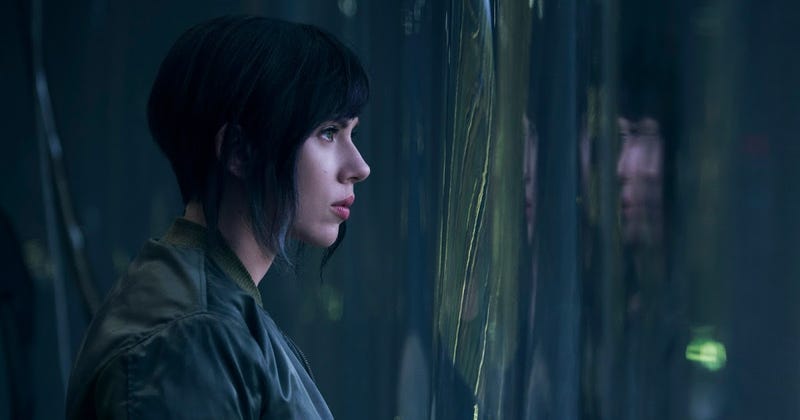Asian actors too busy to fret over Hollywood 'white-washing'
Yuri Kageyama, Associated Press Updated 10:20 am, Thursday, June 30, 2016

Photo: Andrew Medichini, AP
In this Sept. 5, 2007, file photo, Japanese actress Kaori Momoi poses during the photo call for the movie "Sukiyaki Western Django" at the 64th Venice Film Festival, in Venice, Italy. The film world of Asia is too busy making movies of its own to fret much about the debate slamming Hollywood - the casting of white people in roles written for Asians. Momoi, who appeared in “Memoirs of a Geisha,” as well as Russian filmmaker Aleksandr Sokurov’s “The Sun,” suggested acting was ultimately about individual talent, not skin color or nationality

Photo: Lionel Cironneau, AP
In this May 18, 2013 file photo, actor Vijay Varma poses for photographers during a photo call for the film "Monsoon Shootout" at the 66th international film festival, in Cannes, southern France. The film world of Asia is too busy making movies of its own to fret much about the debate slamming Hollywood - the casting of white people in roles written for Asians. The Indian actor who starred in "Monsoon Shootout," a crime story with multiple endings, shown at Cannes, eloquently directed by Amit Kumar, pointed out insularity was prevalent in Bollywood as well

Photo: Thibault Camus, AP
In this May 11, 2016, file photo, actress Gong Li arrives on the red carpet for the screening of the film Cafe Society and the Opening Ceremony at the 69th international film festival, Cannes, southern France. The film world of Asia is too busy making movies of its own to fret much about the debate slamming Hollywood - the casting of white people in roles written for Asians. Li, the star of Chinese auteur Zhang Yimou’s films, such as “Raise the Red Lantern,” characterized the dilemma as a “problem of marketability.”

Photo: Yoo Hyo-lim, AP
South Korean actress Claudia Kim poses during an interview in Seoul, South Korea, Thursday, June 30, 2016. The film world of Asia is too busy making movies of its own to fret much about the debate slamming Hollywood -_ the casting of white people in roles written for Asians. Kim, known in her native South Korea as Soo Hyun, noted she has been lucky to play independent Asian women in most movies, such as Dr. Helen Cho in “Avengers: Age of Ultron,” the 2015 movie based on Marvel comics. (Yoo Hyo-lim/Yonhap via AP)
TOKYO (AP) — The film world of Asia, known for producing Akira Kurosawa, Satyajit Ray, Brillante Mendoza and other greats, is too busy making movies of its own to fret much about the debate slamming Hollywood — the casting of white people in roles written for Asians.
While hurt, irritated or dumb-founded perhaps about the so-called "white-washing" syndrome, performers here aren't expressing the level of outrage of a Margaret Cho, George Takei or other Americans, The Associated Press has found.
Many shrugged off the phenomenon as inevitable, given commercial marketability needs, noting Asian films also cast well-known actors over and over.
Casting white people in non-white roles is as painfully old as Charlie Chan and Fu Manchu in American entertainment. That kind of monolithic casting continues — recently with the tapping of Tilda Swinton as a character that was originally Tibetan in the new Marvel "Dr. Strange" movie.
It's also a sensitive topic. South Korean actor Lee Byung-hun declined to be interviewed through his representative, who noted Lee was set to be in a Hollywood film.
Kaori Momoi, who appeared in "Memoirs of a Geisha," as well as Russian filmmaker Aleksandr Sokurov's "The Sun," suggested acting was ultimately about individual talent, not skin color or nationality.
Momoi praised the devotion, skill and professionalism of Scarlett Johansson, whose starring in "Ghost in the Shell," based on a Japanese manga, has stirred up an uproar as a prime example of "white-washing." Momoi played the mother of Johansson's character.
"I felt blessed to have worked with her," she said, urging actors to be selective of the directors they choose to work with. "And so what's fantastic is fantastic. What fails just fails."
Like other actors with experience in Asia, Momoi saw Hollywood more as an opportunity. She was already a superstar in Japan when she started acting in movies abroad about a decade ago. What she enjoyed was the challenging novelty of it all, "getting away from being Kaori Momoi," as she described it.
"Compared to Japan, there is so much potential and recognition in the U.S. for independent films," said Momoi in a telephone interview from Los Angeles.
She got to know film people at international festivals, including Berlin, which showed "Fukushima, Mon Amour," a film she was in. She has become a director herself, having two films to her credit, including "Hee," being released later this year, in which she also gives a harrowing rendition of an aging prostitute.
Claudia Kim, known in her native South Korea as Soo Hyun, noted she has been lucky to play independent Asian women in most movies, such as Dr. Helen Cho in "Avengers: Age of Ultron," the 2015 movie based on Marvel comics.
But she was baffled when she learned a white actress was picked for the Asian role in a Hollywood movie she had auditioned for. She declined to identify that film.
"It is definitely not a pleasant experience," she told the AP, calling the choice "ridiculous."
Vijay Varma, an India actor who starred in "Monsoon Shootout," a crime story with multiple endings that was shown at the Cannes Film Festival, pointed out insularity was prevalent in Bollywood as well.
Families dominate the business, although he was an exception and came from a family unrelated to movies. Bollywood counts on mass appeal, casting the "familiar," just like Hollywood, he added.
When an effort that defies boundaries turns out to be a great movie, like "Life of Pi," which starred an Indian actor, combined live action with computer graphics, and had a Taiwan-born director Ang Lee, "it feels really good," Varma said.
While some Japanese may wonder why Chinese actress Zhang Ziyi is the heroine in "Memoirs of a Geisha," they also feel no qualms routinely casting Japanese to play Chinese and other non-Japanese Asian roles, feigning embarrassingly phony accents and mannerisms.
Landing roles in Asian movies is relatively off-limits for Americans, usually relegated to blatantly "foreign" roles. Koji Fukada's "Sayonara" starred Bryerly Long, an American, as a dying woman in Japan, but the film also starred a humanoid robot as her loyal companion.
Gong Li, the star of Chinese auteur Zhang Yimou's films, such as "Raise the Red Lantern," characterized the dilemma as a "problem of marketability."
"Asian culture has not meshed well with U.S. film culture. It's not integrated. There are a lot of American A-listers who are making movies in China right now, who have not done well. So it's the same whether you cast a famous actor or not not-so famous one. Chinese people don't know who they are," she said as she walked the red carpet recently at Cannes.
Examples abound. "Hollywood Adventures" had an American setting and Chinese stars but was doomed by the stiff translation of English dialogue. Nicolas Cage and Hayden Christensen made the action fantasy "Outcast" for the Chinese market, where it flopped. Jackie Chan's "Dragon Blade," co-starring Adrien Brody and John Cusack, was a hit in China, but its U.S. showing failed to replicate the martial arts superstar's past Hollywood successes.
Matt Damon and director Zhang Yimou are hoping for a better reception in their upcoming science-fiction thriller "The Great Wall."
And many performers in both places hope for a more multicultural future.
Respecting diversity in casting could lead not only to better films but also a better world, said Monisha Shiva, an Indian-American actress who has worked in both India and the U.S., and found the former to be more empowering.
"I was the center. I was the story," she said in a telephone interview from New York.
"The magic of acting is to give people visions and imagination, and imagine a different world. You want that. It's important to use actors of color," said Shiva. "Art is to start to make new visions. And it's a way to heal."
___
Associated Press writers Angela Chen in Hong Kong and Youkyung Lee in Seoul, South Korea, contributed to this report.
___
Follow Yuri Kageyama on Twitter at
https://twitter.com/yurikageyama
Her work can be found at
http://bigstory.ap.org/content/yuri-kageyama





 Reply With Quote
Reply With Quote










